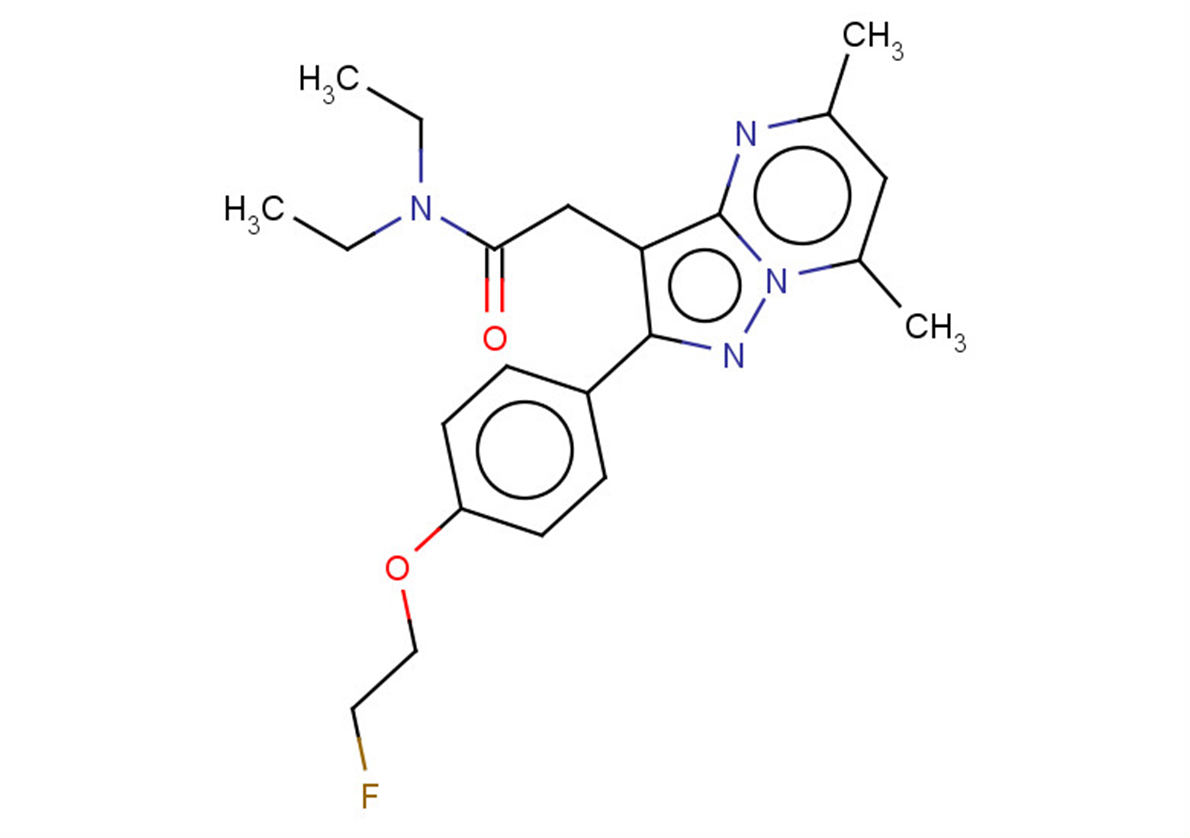
DPA-714
CAS No. 958233-07-3
DPA-714( —— )
Catalog No. M25016 CAS No. 958233-07-3
DPA-714 is a high affinity translocator protein (TSPO) ligand (Ki=7 nM).
Purity : >98% (HPLC)
 COA
COA
 Datasheet
Datasheet
 HNMR
HNMR
 HPLC
HPLC
 MSDS
MSDS
 Handing Instructions
Handing Instructions
| Size | Price / USD | Stock | Quantity |
| 5MG | 205 | In Stock |


|
| 10MG | 335 | In Stock |


|
| 25MG | 566 | In Stock |


|
| 50MG | 806 | In Stock |


|
| 100MG | 1098 | In Stock |


|
| 200MG | Get Quote | In Stock |


|
| 500MG | Get Quote | In Stock |


|
| 1G | Get Quote | In Stock |


|
Biological Information
-
Product NameDPA-714
-
NoteResearch use only, not for human use.
-
Brief DescriptionDPA-714 is a high affinity translocator protein (TSPO) ligand (Ki=7 nM).
-
DescriptionDPA-714 is a high affinity translocator protein (TSPO) ligand (Ki=7 nM). It is designed with a fluorine atom in its structure, allowing labelling with fluorine -18 and in vivo imaging using positron emission tomography. [18F]DPA-714 successfully assesses for the specific imaging of inflammation in various models of neuroinflammation and in a brain tumor model.
-
In Vitro——
-
In Vivo[18F]DPA-714 binding significantly increases in vivo as a result of AD‐like pathology and age in APPswe×PS1Δe9 mice.
-
Synonyms——
-
PathwayOthers
-
TargetOther Targets
-
RecptorTSPO
-
Research Area——
-
Indication——
Chemical Information
-
CAS Number958233-07-3
-
Formula Weight398.47
-
Molecular FormulaC22H27FN4O2
-
Purity>98% (HPLC)
-
SolubilityDMSO:41.67 mg/mL (104.57 mM; Need ultrasonic)
-
SMILESCCN(CC)C(Cc1c2nc(C)cc(C)n2nc1-c(cc1)ccc1OCCF)=O
-
Chemical Name——
Shipping & Storage Information
-
Storage(-20℃)
-
ShippingWith Ice Pack
-
Stability≥ 2 years
Reference
1.James ML, et al. DPA-714, a new translocator protein-specific ligand: synthesis, radiofluorination, and pharmacologic characterization. J Nucl Med. 2008 May;49(5):814-22.
molnova catalog



related products
-
Latrepirdine
Latrepirdine is an orally active, and neuroactive antagonist of multiple drug targets, including histamine receptors, GluR, and 5-HT receptors, used as an antihistamine drug.
-
(iso)-T 448
——
-
α-?Amyrin acetate
α-Amyrin acetate is a natural product( triterpeno), with anti-inflammatory activity, antispasmodic profile and the relaxant effect.



 Cart
Cart
 sales@molnova.com
sales@molnova.com


